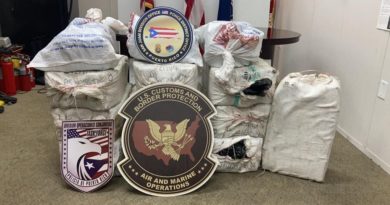Spanish Civil Guard dismantles an arms trafficking network for organized crime
The Civil Guard, within the framework of the so-called “TRETA” operation, has made seventeen (17) entries and records in the provinces of Alicante, Guipúzcoa, Madrid, Ciudad Real, Barcelona, Granada, Zaragoza and Murcia. As a result, nine people have been arrested and another six have been investigated for the alleged crimes of arms trafficking, possession of prohibited weapons, storage of ammunition, falsification of public documents, usurpation of functions and against public health.
The operation began in the middle of last year when it was detected that an individual of Romanian nationality, residing in the province of Alicante, could be trafficking in weapons, which he acquired abroad and later sold in Spain through the Internet and applications of encrypted instant messaging.
The investigation revealed that this individual had been engaged in this illegal activity for several years, being investigated for similar events in his country. Continuing with the investigations, it has allowed to dismantle an organized criminal structure that introduced into Spain detonating weapons easily convertible into real firearms, acquired in Eastern European countries, to later manipulate them in a clandestine workshop located in the province of Alicante, where they were modified to make them suitable for firing projectile ammunition and making real fire, finally being distributed to buyers throughout the national territory.
Many of these buyers belong to the environment of common crime, with a history of violent criminal acts, so with the intervention of these weapons it has been possible to avoid the commission of other violent crimes. In the seventeen home searches carried out in the aforementioned provinces, the following effects have been seized:
- 26 handguns (pistols and revolvers)
- 10 long guns
- 9,928 metal cartridges of different calibers (including war ammunition)
- 1 muffler and 2 chargers
- Machinery and tools for weapon modification
- 3 machines for handmade metal ammunition manufacturing
- 20,195 euros in cash
- 161 marijuana plants (42 kg)
- 2 kg of marihuna buds
- 2 GC and CNP police briefcases (with police insignia and forged card), 31 blank military cards, 1 CNP uniform cap, 1 CNP badge, shackles, Local Police identification vest, boxing keys, large machetes, automatic knives, spray defense.
- Mobile and computing devices.
- Numerous documentation for your study.
One of the detainees, after being brought to justice, entered provisional prison by order of the Judicial Authority, issuing an international OIDE arrest warrant for another of the main investigators in the operation, currently outside Spain. This operation has been developed by the Information Section of the Valencia Area and coordinated by the Information Office (UCE3), with the support of the Information Section of Catalonia, as well as the Information Groups of the Madrid Commanderies, Alicante, Ciudad Real, Guipúzcoa, Granada and Murcia. The development of the investigation has had the collaboration of the Police Services of Romania and the United States (HSI).
Balance weapons seizure
The possible links between arms trafficking and organized crime and terrorism make the fight against this threat one of the priorities of both the National Security Strategy and the European Union; For this reason, the Information Service (SIGC) of the Civil Guard has been making a constant effort to detect and neutralize the illegal supply channels that appear, as evidenced that in the last 5 years the Units of the IACS have developed more than 86 operations against arms trafficking networks with the result of 419 people arrested, more than 4,572 firearms seized (many of them from war), 571,314 metal cartridges intervened, 183 kilos of explosive substances, more than 700,000 euros and 19 clandestine workshops dismantled. The operation is part of the Comprehensive Plan for the Control of Firearms (PICAF) of the Civil Guard, which has the responsibility of administrative control of firearms through the Interventions of Weapons and Explosives (IAEs) deployed throughout the national territory and within which the National Arms Focal Point has recently been established.




